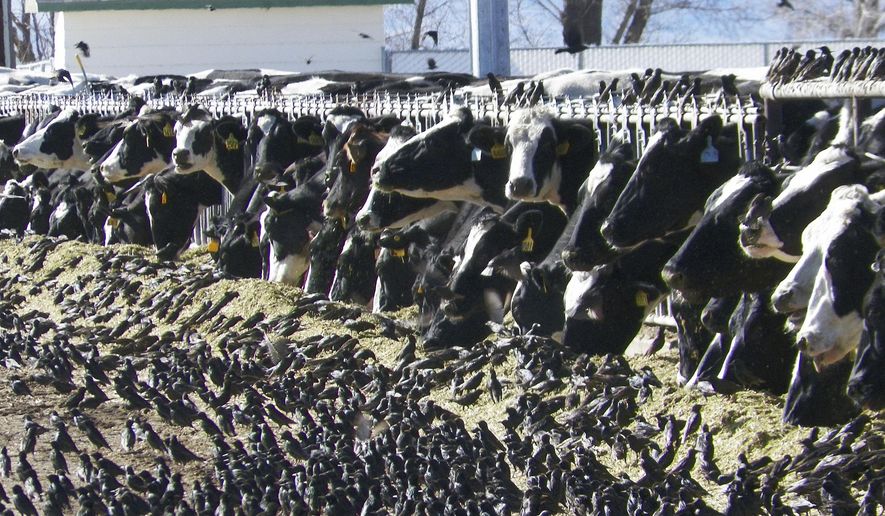OPINION:
After decades of transparency, why did the U.S. Department of Agriculture (USDA) suddenly delete its database of animal welfare violations? This is raising red flags for liberals, but it is a nonpartisan issue and should be of special concern for conservatives for a variety of reasons.
Those of us who understand the new administration to be committed to transparency, draining the swamp and ending lobbyist control of policy, the USDA action is more than odd — it’s disturbing and represents the antithesis of what the current political reformation represents.
In their coverage of the USDA action, National Geographic reported, “Two weeks into the Trump administration, thousands of documents detailing animal welfare violations nationwide have been removed from the website of the United States Department of Agriculture (USDA), which has been posting them publicly for decades. These are the inspection records and annual reports for every commercial animal facility in the U.S. — including zoos, breeders, factory farms, and laboratories.”
Further, NatGeo reported, Adam Roberts, CEO of Born Free USA, an animal advocacy nonprofit based in Washington, D.C., “is “shocked” by the purge. He says the documents shed light on cruelty in “substandard roadside zoos, shameful animal circuses, puppy breeding factories and more,” the magazine states.
“Often, the animals in these facilities may have visible wounds or cramped conditions or no access to water,” Mr. Roberts says.
“The government’s decision to make it harder to access this information further protects animal exploiters in the shroud of secrecy on which their nefarious activities thrive,” he tells NatGeo.
While the records will be available via a Freedom of Information Act request, this is little comfort considering the issue at hand is often one of life and death.
It’s understandable since most of the political argument these days is centering on how to deal with a bloody, chaotic world being savaged by zombie terrorists. The new president and his team will address that, but here at home we also must focus on our compassion for the perpetually voiceless — the animals — under our care.
If we are to truly address the violence, terrorism and poverty that strikes at our core in this country, acting on our responsibility for perpetually innocent and voiceless animals must be at the heart of our humanity.
The conservative ideal requires this, as our argument is that we don’t need big government and busybody politicians telling us how to lead our lives. Conservatism relies on the argument that the individual can and should be trusted to run their own lives. Part of being responsible for ourselves includes defending and protecting those creatures who are at our mercy.
Despite the backward action of the USDA, culturally there has been good news on the animal-dignity home front.
In May 2016, after years of controversy and public pressure, Ringling Bros. and Barnum & Bailey Circus announced it was removing elephants from its shows. Then in January, Ringling Bros. announced the closing of the 146-year-old company.
Most of us enjoyed the circus growing up, but our growing understanding of the unique and brilliant lives of animals, the recognition of their individual right to not be enslaved for entertainment, is a basic value naturally enshrined in the conservative ideal.
Upon hearing of the closing of the circus, business guru Suzy Welch put it beautifully on her Twitter feed. She wrote, “Hoping w/ all my heart today that end of Ringling Bros. is start of more ppl understanding that mercy for animals is measure of our humanity.”
Indeed.
In the first week of this year of reformation, SeaWorld in San Diego announced the end of its “killer whale” shows. That’s good news as well, but it was prefaced by the death of Tilikum, the Orca featured in the documentary “Blackfish,” from bacterial pneumonia. The film brought to light the problems experienced by captive whales. While the San Diego SeaWorld has stopped the whale shows, other SeaWorld parks plan to discontinue them in 2019, according to NatGeo.
Just as the USDA made its move against transparency, the good news is a bipartisan (Republican-led) bill is now in the congressional hopper. Politico reported, “Rep. Ken Calvert, California Republican, [introduced a bill] that would require federal agencies, including USDA, to disclose how many animals they’re using for scientific testing. It would amend a 2000 law, also sponsored by Mr. Calvert, that asks agencies to move away from using animals in experiments.”
“The bill was written in partnership with the White Coat Waste Project, an animal welfare group that seeks to attract Republicans by making an argument about government waste in animal testing. The group estimates that at least $20 billion is spent a year on animal testing in government labs, though there’s no official number. ’This is an accountability and transparency issue,” said Justin Goodman, the group’s vice president of advocacy and public policy,’ ” Politico said.
The year 2017 is one of change in more ways than just politically. For conservatives, this change is imperative as we look to improve the quality of everyone’s lives around the world, having elected a new president who takes national security and individual freedom seriously.
In part, this means the Trump team ensuring transparency at every agency and rejecting the usual suspects in the swamp allowing lobbyists and big donors to control policy choices. President Trump’s commitment to an elevation of the quality of life for all Americans can be reinforced with a demand that the USDA reverse its dangerous and deadly decision to scrap the animal abuse database.
• Tammy Bruce, author and Fox News contributor, is a radio talk show host.




Please read our comment policy before commenting.